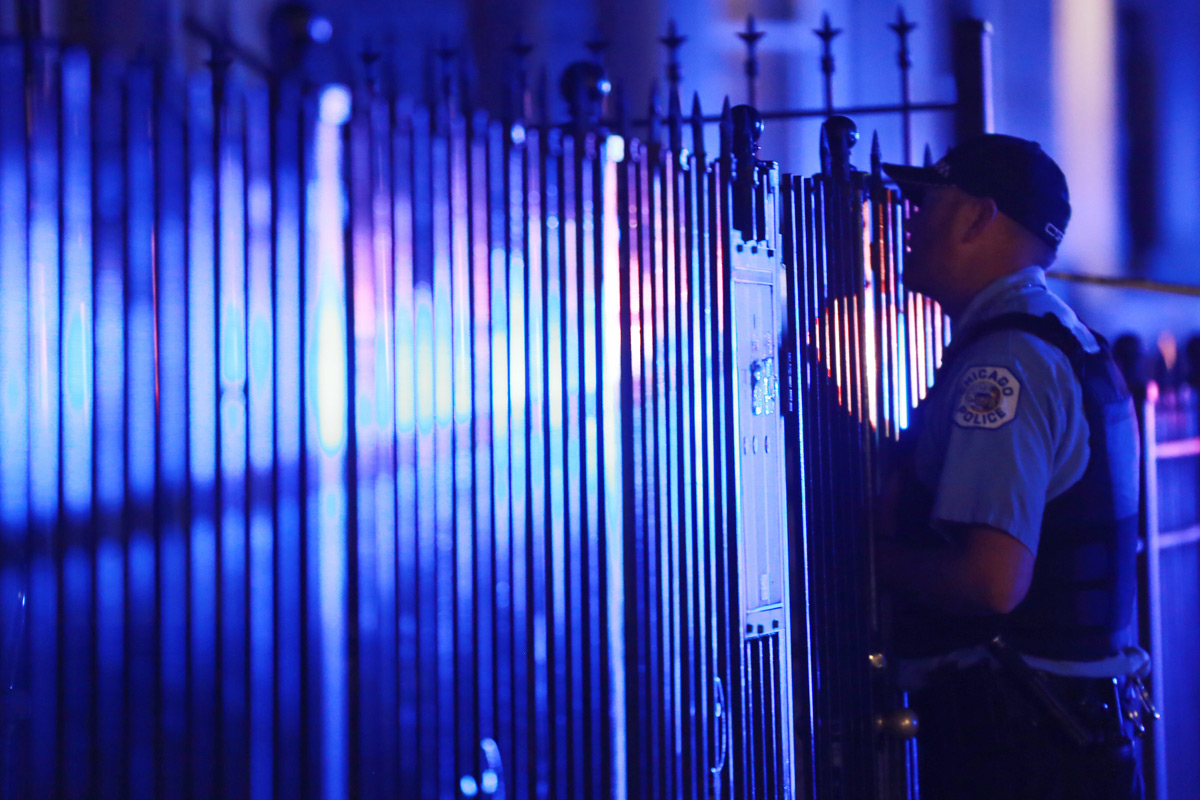Sure as the sun rises every morning, the idea that a push for gun control would follow a horrific mass shooting was immediately pre-empted with: but Chicago. Not just from the fever swamps of social media and comment sections, but from the podium of Sarah Huckabee Sanders, the White House Press Secretary:
"I think if you look to Chicago, where you had over 4,000 victims of gun-related crimes last year, they have the strictest gun laws in the country. That certainly hasn’t helped there. So, I think we have to, when that time comes for those conversations to take place, then I think we have to look at things that may actually have a real impact."
It's been a few years since Chicago's handgun ban was stricken from the books by the Supreme Court, but the biggest problem was always that the city's handgun ban was easily circumvented through the suburbs—Illinois laws are relatively strict but not the most strict—or from states with much more lenient laws like Indiana and Mississippi.
The first part of Sanders's statement has been getting all the attention, mostly because it's not true. It is true Chicago did have very strict gun laws at the same time as high rates of gun violence, and while that may speak more to the ineffectiveness of local gun laws relative to broader ones, it's not like Indiana and Mississippi are going to change their laws at our behest.
Gun-rights advocates will keep pushing, and may push their argument further than it's gone in the past, as The Guardian's Lois Beckett notes. The GOP is unlikely to move very much in that direction (although the NRA, in a mild surprise, said today that it "believes that devices designed to allow semi-automatic rifles to function like fully-automatic rifles should be subject to additional regulations," in reference to the "bump stocks" used in the Las Vegas shootings).
Those are the broad outlines of how the debate is forming. They'll get plenty of attention. So let's turn ourselves to the second part. If "the time comes for those conversations to take place"—and like it or not, they have started—then "we have to look at things that may actually have a real impact." OK, let's do it.
And if that's specifically Chicago, or the gun violence for which Chicago serves as the knee-jerk synecdoche, conveniently there are plenty of plans for the Trump administration or GOP lawmakers to run with. I've written about lots of them: summer jobs, targeted intervention in social networks, psychological health treatment, relocating residents to safer neighborhoods, cognitive-behavioral therapy, lead abatement.
That's just a handful from one city, even if it's the one that politicians think should be better served. Other cities have employed similar strategies that could be borrowed from. At Vox, German Lopez offers six different strategies for reducing violence that don't involve gun control. It doesn't even have to be Chicago; there are smaller cities with higher rates of gun violence that could be better subjects for smaller-scaled interventions.
If you believe that "nothing stops a bullet like a job," the GOP-led Congress could dust off an idea that's been floating around since the days of Jack Kemp and recently rebooted by Rand Paul: enterprise zones, which offer considerable tax breaks in areas with extremely high unemployment. Their track record hasn't been great, but they could be re-engineered, tried, and studied again; part of developing interventions is failing.
That's just scraping the surface. Since there seems to be, shall we say, a considerable awareness of Chicago's violence at the highest levels of the federal government and an explicit desire to have conversations about things have real impact and do not involve gun control, now is an opportune time for that awareness of the problem to be backed with real attempts to solve it.



